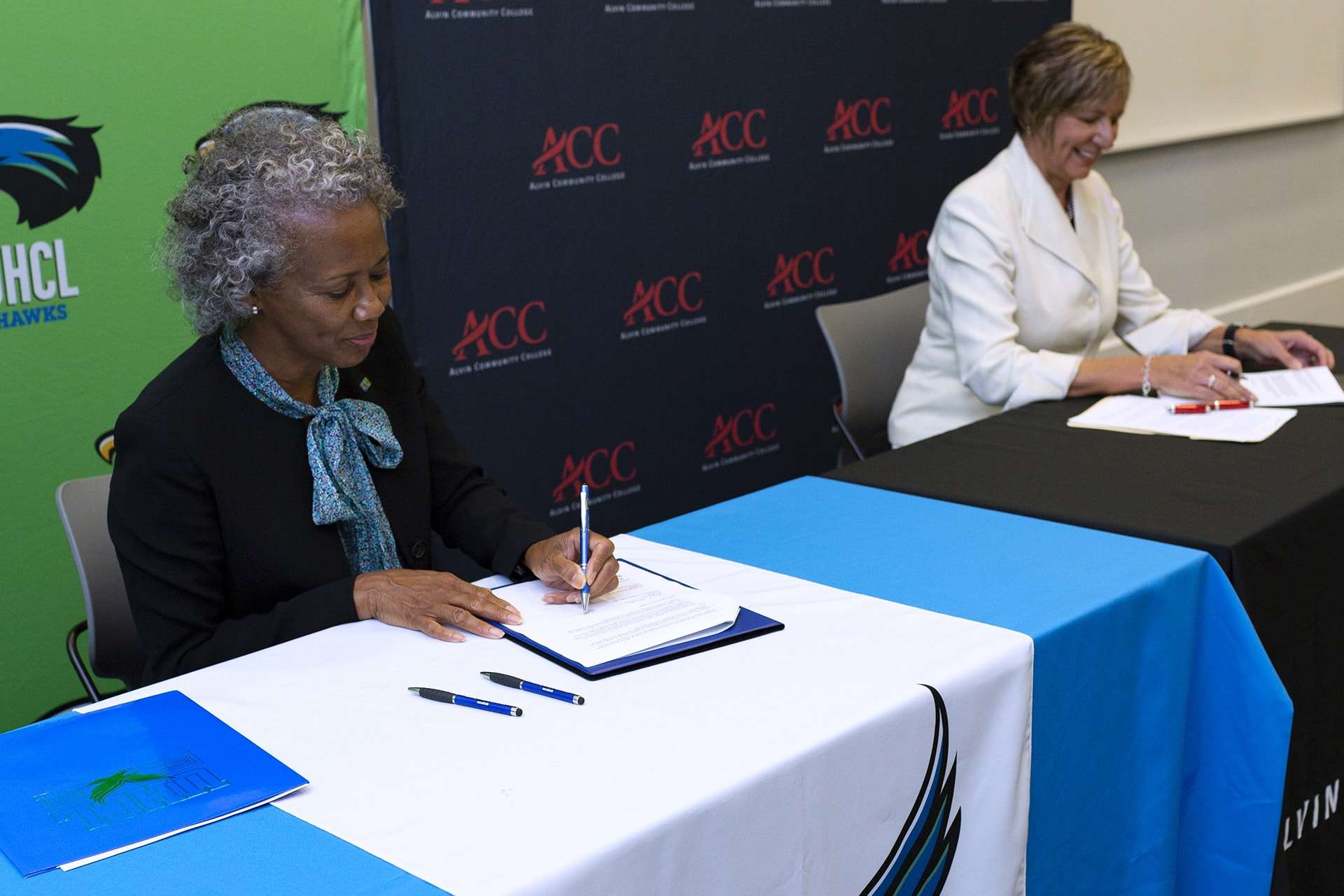Tips On Transferring From A 2
Many students use a community college or another two-year college as a stepping-stone to a four-year college and a bachelors degree. If you want to take this path, heres what you should do:
- Make sure that the credits you earn from your classes at the two-year college will count at your four-year college so you can start out there as a junior. This can save you time and money.
- Sign up for a transfer program at a two-year college. These programs include the same kinds of courses that youd take in your first two years at a four-year college. Theyre designed specifically to help you succeed at making the transition.
Is A 31 Gpa Good In Community College
To elaborate, the national average for GPA is around a 3.0, so a 3.1 puts you above average nationally. Having a 3.1 GPA as a freshman isnt bad, but theres certainly room for improvement. This GPA will still give you many college options. However, youll miss out on schools that are on the more selective side.
Prepare To Afford The Final Years Of College
Transferring from a community college to a university can be quite a shock when it comes to cost and financial aid. With the average costs of college tuition ranging from $10,000 to $35,000, earning scholarships is paramount for many families looking to avoid large amounts of educational debt.
There are many outside scholarships offered specifically to transfer students, plus there might be school-based scholarships available from both their community college and the four-year university they transfer to. And besides free money, theres always the option of saving up earnings from a part-time job to help cover university expenses.
Also Check: Careers That Pay Well Without College
Catawba Valley Community College
Undergraduate enrollment: 4,827Average net cost of attendance after awards: $8,583Students transferred out: 50%Students earned an associates degree or certificate: 28%
With a significantly larger student body than the first two schools, Catawba Valley describes itself as a great place to begin a four-year degree. It has agreements in place with 13 North Carolina schools to help its alumni transition to a bigger campus.
Those agreements appear to be working, since data show that roughly half of all Catawba Valley students will eventually transfer to another school.
Making Sure Your Credits Transfer From Community College

After deciding which classes you should take in community college, youll probably want to confirm a few more things:
- Will my credits transfer from community college to my desired university?
- How do I transfer my credits from community college?
These steps arent too bad. You may want to read the following posts before you register for classes in community college:
You May Like: Ashworth College Accreditation Reviews
You May Like: Dedng Scholarship
Align Your Course Selection With The Transfer Application
If you apply to be an agriculture major but dont take agriculture classes, its going to be pretty hard to convince them youre a genuine applicant
It you dont know what you want to study, dont worry millions of students enroll as undeclared majors.
However, if you know what you want to study and you align your course selections and application appropriately, you will have a much better shot at acceptance.
Universities often accept transfer applicants to fulfill very targeted spots. For example, maybe they need more economics or engineering majors while they are swamped with Spanish majors.
If you actively want to study a subject that fulfills a need in the schools study body, and your application and essay speak to that desire, they will interpret your application as cohesive and purposeful.
Read Also: Does The Army Pay For College
After Transferring From One Community College To Another
It’s time to transfer from community college to university! While starting over at community college, it’s a good time to grab you copy of this community college guide. You’ll learn how to be a top student at your new community college and take the “right” steps to transfer to your dream university.
This post was written by Chad Agrawal
Chad Agrawal is the founder of CCTS, helping students transfer from community college to Ivy League, tier 1 or anywhere else by following this community college guide.
Also Check: Arielle Nachmani College
Transferring Credits Between Maines Community Colleges
This Course Equivalency Matrix provides a quick reference guide for students who are interested in transferring general education course credits from one Maine community college to another. Although the chart is updated on a regular basis, students are encouraged to confirm the information with the school to which they wish to transfer their credits.
to find out more about transferring credits to EMCC
Transferring From A Community College To A Private Institution
Massachusetts Community Colleges also have relationships with many private colleges and universities in New England and beyond, so transferring has never been easier. These agreements are designed to help students obtain baccalaureate degrees in specific fields. As always, consult your advisor to make sure that you maintain a track to qualify for one of these programs should you intend to transfer.
Massachusetts Independent College Transfer Guarantee
The Massachusetts Independent College Transfer Guarantee is a partnership agreement between the states community colleges and private colleges and universities. Students can complete an associate degree at a Massachusetts Community College and transfer to a participating four-year independent college in the state with guaranteed admission. For more information, including participating institutions and student eligibility visit the Massachusetts Department of Higher Educations website.
Read Also: Universities Still Accepting Applications
Know What Courses To Take For A Smooth Transfer
When you take a trip, its important to follow the GPS or road map carefully to avoid getting lost and losing time retracing your steps. The same principle applies when it comes to maximizing transfer credits between community college and bachelors degree programs.
At the same time, students should also focus on the academic merit of each community college they consider. Some community colleges offer two-year degrees that can result in employment opportunities for savvy students. This can give students time to work and save money for a four-year degree.
Do Credit/no Credit Grades Transfer Do D Grades Or Ws
In some classes, you can choose the Credit/No Credit grading option rather than a letter grade. The deadline to notify your instructor that you prefer the CR/NC grade option is on the semester calendar in the schedule of classes. Grades of CR and NC are not factored into your GPA. A CR is a passing grade indicating satisfactory completion of course requirements. A NC grade is not a passing grade but will not hurt your GPA. This grading option is not intended for the courses required by your major. D grades received in transferable coursework are included in a students transferable GPA. In most cases, Ws are not a focus of admission decisions unless there is an excessive number of Ws over a longer course of time.
Also Check: Cfcc Placement Test
Also Check: Selling Used College Books
Is There A Maximum Number Of Units That I Can Transfer
California public universities will count a maximum of 70 community college units toward the total number of units you need to complete for a bachelors degree. Independent and out-of-state institutions vary in their limits and you should check their catalog or web site for information. Different limits may apply if you have already attended a four-year institution and you should meet with a counselor right away.
How Many Units Do I Need To Transfer

You will achieve full junior standing when you have completed 60 transferable semester units. If you wish to transfer as a lower division student, the university will consider your high school record in determining whether to admit you. The University of California requires 60 UC-transferable semester units for upper division transfer. UC campuses currently are not accepting students as lower division transfers. The California State University currently grants junior standing at 60 semester units. CSU campuses currently are not accepting lower division transfers. Independent and out-of-state universities often accept students with fewer than 60 semester units and will require out-of-state tuition. Please check the online catalog for the specific university to which you want to transfer for their requirements. A CCSF transfer counselor can assist you with that.
Recommended Reading: How To Sell College Books
Your Route To Academic Success
Save money by starting at LCCC and transferring to an Ohio four-year college, including many options in LCCC’s University Partnership. With Ohio Transfer 36, your general education classes are guaranteed to transfer.
See a complete list of LCCC’s Ohio Transfer 36 courses.
Transferring to another college or university is a complex process that can be challenging for new students, but you dont have to go through it alone. Our academic advisors and University Partnership transfer coordinator are here to make sure you have the right plan to meet your transfer goals. We look forward to helping you on this journey and want to make a smooth transition from LCCC to a four-year university.
International Students / Foreign Coursework
Students who attended institutions of higher learning in other countries must have their transcript translated into English and evaluated course by course by an agency associated with the Evaluations from National Association of Credential Evaluation Services, www.naces.org, the NACES member must be delivered to the Transfer Evaluator in a sealed envelope from the NACES member.
- Evaluation must state that credits are from an accredited college/university in order for student to receive credit.
- Courses that pertain to the country are not accepted as transfer, e.g., law, accounting courses.
- English courses also are not accepted unless the student studied the English Language/Literature as her/his program of study.
- Transfer of credit is based solely on the NACES members evaluation. If the evaluation does not provide grades, then the course cannot transfer. If the number of credits listed for a course is too minimal, then the course cannot transfer.
- Course outlines for science, math, and technical courses may be required to earn equivalent credit at Bergen Community College.
Read Also: How Much Is The Book Worth
How Does Fafsa Work When You Transfer
If your new school participates in the federal student aid programs, you should update your Free Application for Federal Student Aid form to include your new school. If youre transferring midyear, you may need to submit a withdrawal and a request to have your remaining financial aid disbursements canceled.
Important Information For Transfer Students
Also Check: Getting Into A Masters Program With A Low Gpa
Benefit #4experiential Learning Opportunities
Consistently, one of the top reasons many students choose to enroll at Northeastern University is our extensive experiential learning network and numerous opportunities to enhance your in-classroom learning with work-based projects. Whether you choose an online project or something close to home, there is an experiential learning opportunity for everyone.
Because many bachelors completion students are working full-time or part-time and have additional daytime commitments, many opt for XN projects, which allow students to participate in six-week virtual projects that are impactful both on the learner and the employer. In Northeasterns health management program, for example, faculty works closely with students current employers to allow working professionals to perform a project at their current job to count toward their course credits.
These projects offer an ideal opportunity for students to gain real-world experience, enhance their resume, and build their professional networksall while completing their degree.
Transferring Credits To The University Of Maine System
EMCC students who plan to transfer to one of the University of Maine Systems campuses are strongly encouraged to seek transfer advising as early as their first semester. Early advising helps students plan course that will maximize transfer credits towards their next degree program. Although program requirements and course equivalencies are subject to change, you can learn more about transfer opportunities at the University of Maine System and review their Transfer Guides here:
Also Check: Miller Motte Classes Online
Read Also: College Hill Virginia State University Episodes
What Is General Education
General Education is a set of courses through which you will become broadly educated by taking classes that cover a wide range of disciplines. GE courses are usually introductory in nature and provide you with fundamental knowledge in English, mathematics, the arts and humanities, social sciences, and physical and biological sciences. You will complete the majority of GE coursework needed to receive a bachelor’s degree while you are lower division student at a community college. After transferring to a university with upper-division status, you will be required to take only a few GE courses, so you can focus on your major. For example, you will be required to complete at least 48 units of GE to graduate from a CSU, 39 of which are completed at the lower division level. The GE unit requirements for independent and out-of-state institutions vary, but the ratio of lower division to upper-division is similar. GE courses are divided into subject areas and GE patterns and describe the number of courses that you must take in each subject area to meet total GE requirements. Each institution has its own GE pattern. There are also GE patterns that are accepted by the entire CSU and/or UC systems for transfer to any campus in that system.
Do Transfer Students Get Fafsa

In most cases, new and transfer students are automatically considered for different types of financial aid, like scholarships, when they apply to a school. As long as you meet the admission deadline of the college or university you apply to, you will meet any financial aid deadlines as well.
Recommended Reading: Does Ashworth College Accept Fafsa
Will A University Accept My Community College Credits
With the right planning, yes it will!
So what do we mean by planning? Well, you simply have to understand that different universities have varying degrees of understanding with different community colleges.
Some universities will accept partial credits, some will accept full credits and some might not accept any. All you have to do is to plan and see which university will accept most or all the credits that you plan to get at community college.
You need to work closely with the academic advisor at both the community college and the universities that you plan to attend. These advisors are professionals trained to help you get the best out of your transfer.
In some cases, universities that you want to attend will recommend a community college that they prefer and in some cases, community colleges that you prefer might refer you to universities that they have an understanding with.
This understanding between a university and a college is called an articulation agreement⦠but more on that soon.
Once you complete your associateâs degree program at the community college after two years, you can directly join the university as a junior in the third year of their four-year bachelorâs program.
If you studied the typical fees we shared for both community college and university earlier, you can easily make out the savings you get.
How Do I Find Out About The Transfer Requirements Of Any Particular School
Information for transfer students is published in the catalog of any institution. The Transfer Counseling Center has an extensive library of catalogs and supplementary material that is sent to us from universities all over the country. Transfer Counseling Center staff is available to assist you in locating and using these resources. In addition, a number of universities send representatives to the annual Transfer Day event that is held in September. Some of those representatives also visit CCSF on a regular basis to meet with students individually.
Read Also: Online College Credits Fast
Interested In Pursuing A Degree
Fill out the form and get all admission information you need regarding your chosen program.
This will only take a moment.
Message Received!
Thank you for reaching out to us. We will review your message and get right back to you within 24 hours. If there is an urgent matter and you need to speak to someone immediately you can call at the following phone number:
- We value your privacy.
Reason : Feeling Like You Belong
If you struggled academically in high school, or if youre worried that youre not prepared enough for college, you might feel like you dont belong at a four-year institution.
And youre not alone in feeling that way! That feeling is one of the biggest obstacles to success in post-secondary education. According to an article in The Washington Post:
Still other research has shown that beliefs in particular, beliefs about belonging at college can be as important as planning and study skills. Feeling out of place is usually triggered by a setback freshman year: the student fails a test, for example, or feels he doesnt have any close friends. Any student would be discouraged, but a student who is the first in his family to attend college, or is a member of minority stereotyped as not academic may construe the experience as evidence hes not college material.
Thats right, simply feeling like youre college material can be as important as studying. Taking classes at a community college can help you build up your academic confidence before you transfer to a four-year university. Youll be among a group of people who are working hard to improve their skills, and youll be learning under instructors who understand that you have working lives outside of class.
Think of the 2 years at community college then transfer to university plan as practicing before the performance. Your time at community college will prepare you to be successful later on!
Don’t Miss: Berkeley College Tuition 2020